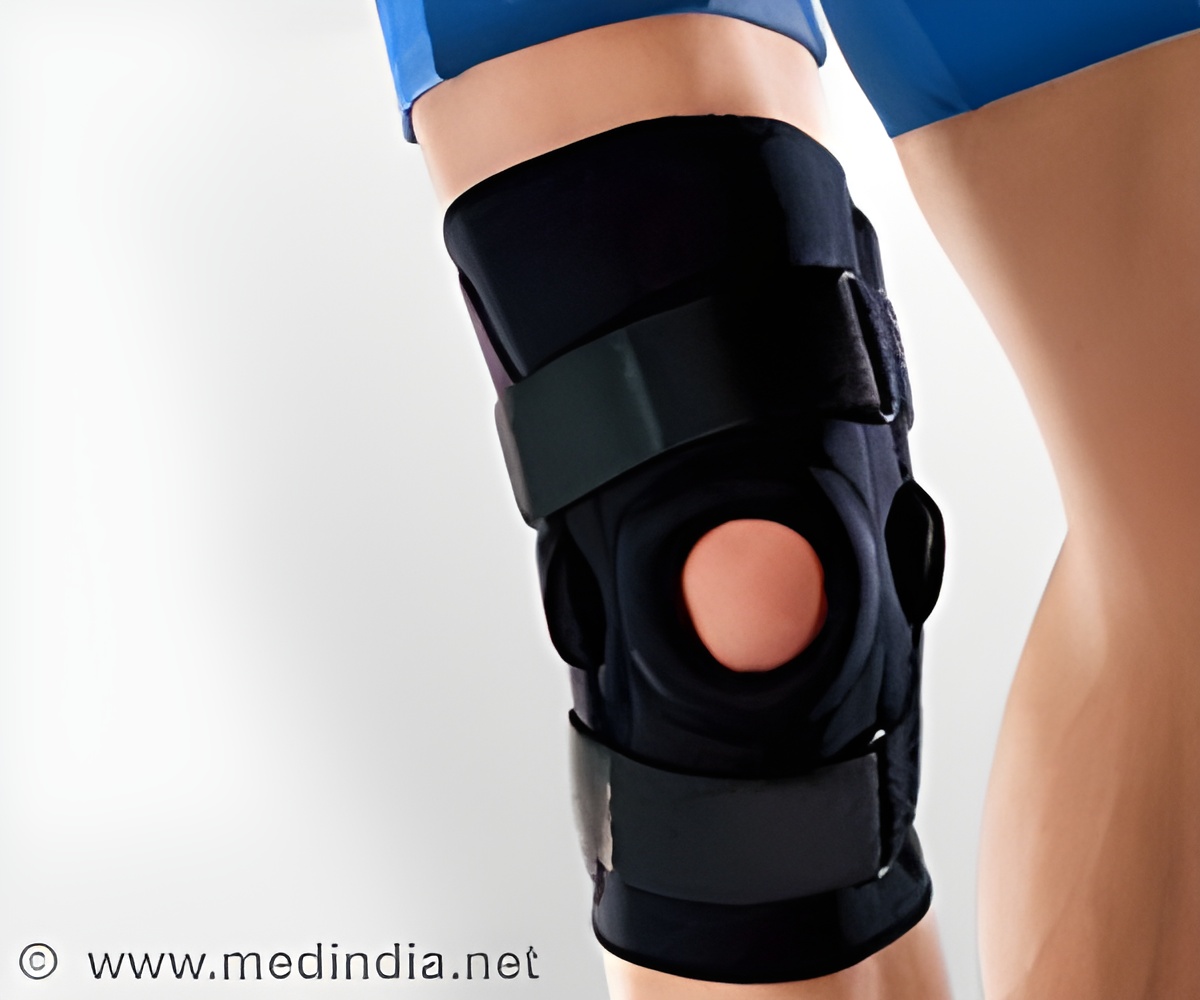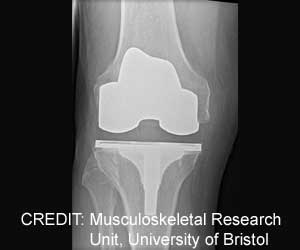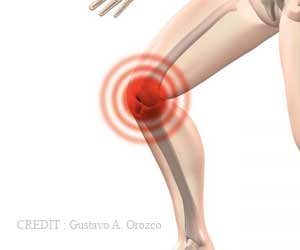
‘Patients who are under 60 years of age, males, those with chronic pulmonary disease, diabetes, liver disease, and a higher body mass index are at increased risk of having the joint replacement redone (known as revision) due to infection.’
Tweet it Now
The study, published in The Lancet Infectious Diseases today conducted as part of the INFORM research programme funded by the National Institute for Health Research (NIHR) and the NIHR Bristol Biomedical Research Centre (BRC), considered the risk of infection following first-time (primary) knee replacement. This study used data from the National Joint Registry (NJR) for England, Wales, Northern Ireland and the Isle of Man linked to the Hospital Episode Statistics database. Knee replacement, used mainly to treat pain and disability caused by osteoarthritis, is a common procedure with around 110,000 operations performed annually in the UK. A rare but serious complication affecting about one per cent of patients is deep infection. This causes considerable distress and often requires long and protracted treatments including revision surgery. This study showed the reason for surgery, the type of procedure performed and the type of prosthesis and its fixation, influenced the risk of needing revision surgery for infection.
Surgery performed following trauma, inflammatory arthropathy or a history of previous infection in the operated joint were more likely to be revised for an infection. Cemented total knee replacements were more likely to be revised for infection compared to patients with an uncemented implant. Finally, the risk of revision was increased for patients with a posterior stabilised fixed-bearing implant or a constrained condylar (CC) implant compared to those with an unconstrained (or cruciate retaining) fixed-bearing implant. The experience of the surgeon and the size of the orthopaedic centre had no or only small effects on the risk of revision for infection.
Uniquely, the research identified that these important factors have a different effect depending on the post-operative period, with liver diseases or inflammatory arthropathy increasing the risk of revision for infection in the long-term but patients receiving a patellofemoral, unicondylar or uncemented total knee replacement had a lower risk of late revision for infection. This is an important factor to consider when conducting further research in this area as just considering overall risk or short-term risk may mean important effects are missed entirely.
Michael Whitehouse, Reader and Consultant in Trauma and Orthopaedic Surgery in the Musculoskeletal Research Unit of the Bristol Medical School: Translational Health Sciences (THS), said: "This work has identified key patient and surgical characteristics which influence the risk of revision for infection following knee replacement, and specifically the risk of further surgery for infection two years or more after the initial operation. This information provides me with the strong evidence I need to discuss the risk of infection with my patients undergoing knee replacement and helps us identify strategies to minimise that risk for them."
Advertisement
The researchers found the risk of revision for infection following primary knee replacement is affected by many different factors but is mainly driven by patient and surgical factors. The possible issues identified in this study should be considered by clinicians when preparing patients for knee replacement surgery.
Advertisement
The research team will analyse further data from the NJR to look at the treatment of infection when it does occur to see what treatment has the best outcomes for patients.
Source-Eurekalert









